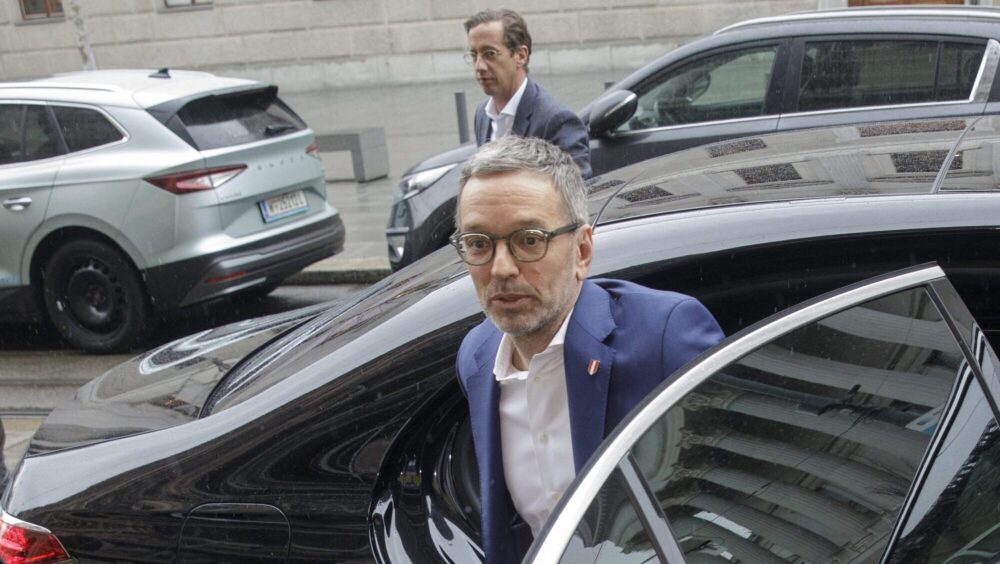
Herbert Kickl
Alex HALADA / AFP
Austria is facing the prospect of early elections after negotiations to form a conservative government collapsed.
Herbert Kickl, the leader of the right-wing Freedom Party (FPÖ)—which won the elections in September—met the country’s president, Alexander Van der Bellen, on Wednesday to inform him that talks with the centre-right People’s Party (ÖVP) had failed following disagreements over the distribution of portfolios.
Kickl said he had wanted to form “an efficient federal government” in order to “lead Austria back to the top of Europe,” with “a migration policy that protects the interests of our country and its people.”
Liebe Freunde,
— FPÖ (@FPOE_TV) February 12, 2025
Herbert Kickl hat soeben den Regierungsbildungsauftrag zurückgelegt. Wir wollten mit einem straffen Zeitplan schnell zu einer leistungsfähigen Bundesregierung kommen. Gemeinsam wollten wir Österreich zurück an die Spitze Europas führen. Leider war die ÖVP nicht zu… pic.twitter.com/PV0ATTVyNt
The leader of the FPÖ had been tasked a month ago with forming a government after the breakdown of three-way coalition talks between the ÖVP, the Social Democrats, and the liberal NEOS party.
Those talks had collapsed primarily due to a disagreement on economic questions.
One particular cause of friction in the most recent talks was about who should get the Interior Ministry. The FPÖ said it wanted to halt illegal immigration at the country’s borders, and it was better fitted to carry out such a program as the previous government led by the ÖVP party had failed on the matter.
Other sticking points included the fact that the eurosceptic-sovereignist FPÖ wanted to be responsible for EU affairs, as it disagrees with the current course of the European Union and the handing over of national competencies to EU institutions. The ÖVP stated, however, that Austria must follow a “pro-European orientation.”
“Although we made concessions to the ÖVP on many points in the subsequent talks, the negotiations were ultimately unsuccessful, much to our regret,” Kickl said.
He added that cooperation with the third largest party, the Social Democrats would be impossible, as their policies are much further to the Left.
Unless the People’s Party and the Social Democrats make another attempt at trying to form a grand coalition, early elections will be called. Such a scenario would likely benefit the FPÖ, which would—according to opinion polls—increase its support by six percentage points to 34%.
🇦🇹#Austria, legislative election poll:
— World Elects (@ElectsWorld) February 6, 2025
🔽FPÖ: 34 % (-1)
🔼SPÖ: 22 % (+1)
🔼ÖVP: 19 % (+1)
🔽Neos: 10 % (-2)
⏸️Grüne: 9 %
⏸️KPÖ: 3 %
…
Market-Lazarsfeld, 28/01/25 pic.twitter.com/qUS9reuD4a
